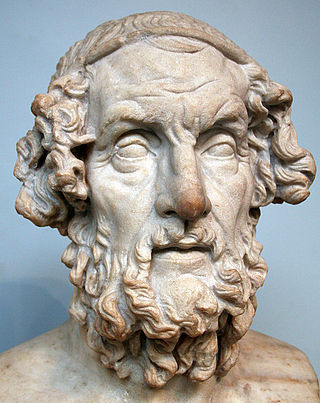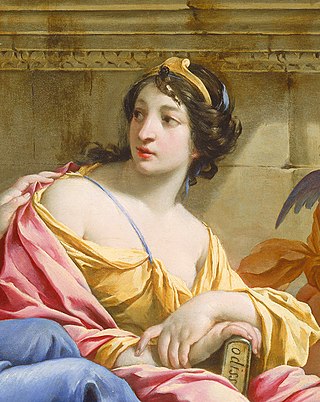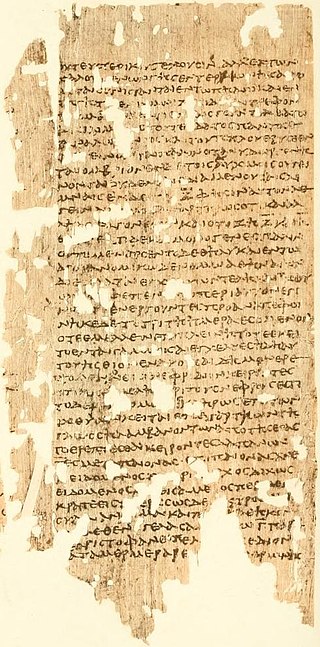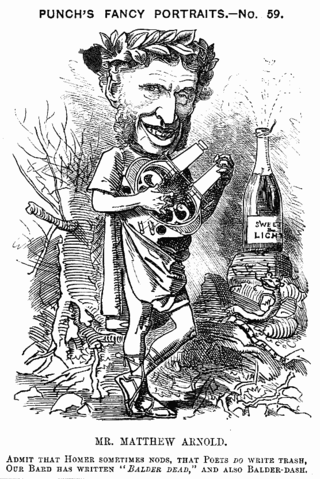Translations
His Latin translations of Homer published in 1537 (Venice) were extremely literal and ad verbum (i.e. word for word). While this was the first published version of the Iliad and Odyssey in Latin, the originality of the translation of Divus has been questioned: there are very close parallels with a much earlier translation by Leontius Pilatus. They were designed to be read with the Greek originals. There were two Venice editions of 1537, by Jacob a Burgofrancho and by Melchior Sessa; they share an introduction by Pier Paolo Vergerio, born at Capodistria. [1]
They were later republished by the jurist Obertus Giphanius (Hubrecht van Giffen, 1534–1604) and then used by Jean de Sponde (Spondanus) in his 1583 Homer commentary on Greek and Latin versions. The Greek was the 1572 (Strassburg) edition of Giphanius. [2] What Spondanus included for Latin was not in fact the original translation of Divus, but a 1570 Geneva revision of it, with substantial changes. [3]
They were used by George Chapman in his translations of the Iliad and Odyssey . In fact Chapman is considered to have used the Homer edition by de Sponde, which had parallel Greek and Latin text (the Latin derived from Divus), together with a Greek lexicon attributed to Johannes Scapula, a collaborator of the printer Henri Estienne. [4] [5] It has been said that Chapman's knowledge of Greek was not strong enough to resist entirely the Latin of Divus, with infelicitous results. [6]
Divus was also used more directly by Ezra Pound in his long poem The Cantos , in particular for the opening Canto I ("Lie quiet Divus. I mean, that is Andreas Divus, In officina Wecheli, 1538, out of Homer"). [7] [8] [9] The end of Canto I also references Latin translations of the Homeric Hymns published with the original translations of Divus, these being by Georgius Dartona known as Cretensis (the Cretan). [10]

Homer was a Greek poet who is credited as the author of the Iliad and the Odyssey, two epic poems that are foundational works of ancient Greek literature. Homer is considered one of the most revered and influential authors in history.

The Odyssey is one of two major ancient Greek epic poems attributed to Homer. It is one of the oldest extant works of literature still widely read by modern audiences. As with the Iliad, the poem is divided into 24 books. It follows the Greek hero Odysseus, king of Ithaca, and his journey home after the Trojan War. After the war, which lasted ten years, his journey from Troy to Ithaca, via Africa and southern Europe, lasted for ten additional years during which time he encountered many perils and all of his crewmates were killed. In his absence, Odysseus was assumed dead, and his wife Penelope and son Telemachus had to contend with a group of unruly suitors who were competing for Penelope's hand in marriage.
In Greek mythology, Tyro was an Elean princess who later became Queen of Iolcus.

In Greek mythology, dreams were sometimes personified as Oneiros or Oneiroi. In the Iliad of Homer, Zeus sends an Oneiros to appear to Agamemnon in a dream, while in Hesiod's Theogony, the Oneiroi are the sons of Nyx (Night), and brothers of Hypnos (Sleep).
In Greek mythology, Hyperion was one of the twelve Titan children of Gaia (Earth) and Uranus (Sky). With his sister, the Titaness Theia, Hyperion fathered Helios (Sun), Selene (Moon) and Eos (Dawn).

George Chapman was an English dramatist, translator and poet. He was a classical scholar whose work shows the influence of Stoicism. William Minto speculated that Chapman is the unnamed Rival Poet of Shakespeare's sonnets. Chapman is seen as an anticipator of the metaphysical poets of the 17th century. He is best remembered for his translations of Homer's Iliad and Odyssey, and the Homeric Batrachomyomachia.

The Epic Cycle was a collection of Ancient Greek epic poems, composed in dactylic hexameter and related to the story of the Trojan War, including the Cypria, the Aethiopis, the so-called Little Iliad, the Iliupersis, the Nostoi, and the Telegony. Scholars sometimes include the two Homeric epics, the Iliad and the Odyssey, among the poems of the Epic Cycle, but the term is more often used to specify the non-Homeric poems as distinct from the Homeric ones.

The Cantos by Ezra Pound is a long, incomplete poem in 120 sections, each of which is a canto. Most of it was written between 1915 and 1962, although much of the early work was abandoned and the early cantos, as finally published, date from 1922 onwards. It is a book-length work, widely considered to present formidable difficulties to the reader. Strong claims have been made for it as the most significant work of modernist poetry of the twentieth century. As in Pound's prose writing, the themes of economics, governance and culture are integral to its content.

In Greek mythology, Calliope is the Muse who presides over eloquence and epic poetry; so called from the ecstatic harmony of her voice. Hesiod and Ovid called her the "Chief of all Muses".
In Greek mythology, Alseids were the nymphs of glens and groves. Of the Classical writers, the first and perhaps only poet to reference alseids is Homer. Rather than alseid he used the spelling alsea. The three uses of alsea by Homer are as follows:
"The nymphs who live in the lovely groves, and the springs of rivers and the grassy meadows ."
"They [nymphs] come from springs (krênai), they come from groves (alsea), they come from the sacred rivers flowing seawards."
"The nymphs [of Mount Ida] who haunt the pleasant woods (alsea), or of those who inhabit this lovely mountain and the springs of rivers and grassy meads (pisea)."
The Telegony is a lost ancient Greek epic poem about Telegonus, son of Odysseus by Circe. His name is indicative of his birth on Aeaea, far from Odysseus' home of Ithaca. It was part of the Epic Cycle of poems that recounted the myths of the Trojan War as well as the events that led up to and followed it. The story of the Telegony comes chronologically after that of the Odyssey and is the final episode in the Epic Cycle. The poem was sometimes attributed in antiquity to Cinaethon of Sparta, but in one source it is said to have been stolen from Musaeus by Eugamon or Eugammon of Cyrene. The poem comprised two books of verse in dactylic hexameter.
Leontius Pilatus was an Italian scholar from Calabria and was one of the earliest promoters of Greek studies in Western Europe. Leontius translated and commented upon works of Euripides, Aristotle and Homer including the Odyssey and the Iliad into Latin and was the first professor of Greek in western Europe.

Homeric scholarship is the study of any Homeric topic, especially the two large surviving epics, the Iliad and Odyssey. It is currently part of the academic discipline of classical studies. The subject is one of the oldest in education.

On Translating Homer, published in January 1861, was a printed version of the series of public lectures given by Matthew Arnold as Professor of Poetry at Oxford between 3 November and 18 December 1860.

Venetus A is the more common name for the 10th century AD manuscript codex catalogued in the Biblioteca Marciana in Venice as Codex Marcianus Graecus 454, now 822. Its name is Latin for "Venetian A."
In Greek mythology, Diocles may refer to:

The Iliad is one of two major ancient Greek epic poems attributed to Homer. It is one of the oldest extant works of literature still widely read by modern audiences. As with the Odyssey, the poem is divided into 24 books and was written in dactylic hexameter. It contains 15,693 lines in its most widely accepted version. Set towards the end of the Trojan War, a ten-year siege of the city of Troy by a coalition of Mycenaean Greek states, the poem depicts significant events in the siege's final weeks. In particular, it depicts a fierce quarrel between King Agamemnon and a celebrated warrior, Achilles. It is a central part of the Epic Cycle. The Iliad is often regarded as the first substantial piece of European literature.
The Vulgate is a fourth-century translation of the Gospels and of most of the Old Testament into Latin produced by St. Jerome.
In the Greek mythological tradition, Otreus was the legendary founder of Otrea in southern Bithynia. His name has also been linked to Otrous, a Phyrgian town on the Eucarpitic plain. He is possibly depicted on coins found in the area of Ilium.










